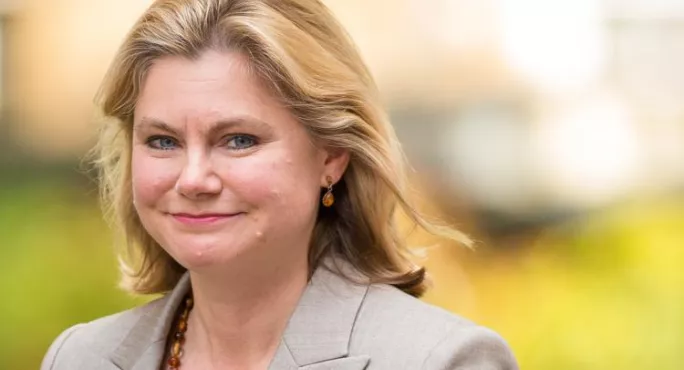The government has announced that teachers will receive a 1 per cent pay rise this September.
Education secretary Justine Greening has outlined a deal that she said “is consistent with the government’s public sector 1 per cent pay policy”.
Teachers at the bottom of the main pay scale will receive an automatic 2 per cent increase but Ms Greening said they only represented “a small proportion of teachers”.
She is accepting recommendations from the School Teachers Review Body to:
- Raise by 1 per cent the minimum and maximum of all pay ranges and allowances in the national pay framework, except
- The main scale where the minimum and maximum of the main pay range will rise by 2 per cent.
Only teachers at the bottom of pay ranges will receive automatic rises. The rest will be down to the discretion of schools.
The education secretary also indicated that schools would have to fund the cost of any pay increases out of their own budgets.
The pay announcement comes in the midst of a funding crisis in schools. The National Audit Office has forecast that schools will face an 8 per cent real terms cut in funding by 2019-20, compared to 2014-15 levels - although the government has said it will find additional money for schools.
In its December submission to the STRB, the DfE forecast that a 1 per cent pay increase to all teachers salaries in 2017-18 would cost schools an additional £250 million.
However, it added the total increase in the schools’ pay bill from such a rise would be approximately £505 million because of a larger workforce and progression within the profession.
Last week Russell Hobby, the general secretary of the NAHT heads’ union, warned that the government would be making “promises with other people’s money” unless additional funding is provided to cover any pay increase.
There is no indication of extra funding in Ms Greening’s statement.
The government’s formal acceptance of the recommendations will be subject to a three week consultation.
The decision comes in the wake of increasing pressure on the government to abandon the public sector pay cap, following the Conservatives’ poorer than expected performance in the general election.
The teaching profession as a whole has not received a pay rise in excess of the 1 per cent pay cap since 2010. In 2011 and 2012, teachers’ pay was frozen altogether.
Last year teachers received a 1 per cent uplift to the bottom and top ends of the pay ranges for all classroom teachers and leadership pay ranges. However, the STRB warned that should pressure on recruitment and retention continue, a “significantly higher” rise would be required.
In a submission to the STRB last December, Justine Greening said the review body needed to make its recommendation for 2017-18 within the 1 per cent cap.
The education secretary also indicated that schools would have to fund the cost of any pay increases out of their own budgets.
A Department for Education spokesperson said: “We recognise and value the hard work of teachers which is why we have accepted the pay deal proposed by the independent School Teachers’ Review Body, in line with the 1 per cent public sector pay policy.
“This will ensure we continue to strike the balance between being fair to public sector workers and fair to taxpayers.
“This deal also allows headteachers to give some teachers up to a 2 per cent pay uplift - alongside generous training bursaries and competitive starting salaries”
Angela Rayner, Labour’s shadow education secretary, commented: “While the education secretary says she has accepted the recommendations of the pay review body, they were forced to accept the arbitrary 1 per cent pay cap. The simple fact is that teachers are still facing a real terms pay cut.
“This weekend’s figures have already exposed the crisis facing schools as more teachers left than joined for the second year running, and continuing to cut their pay year on year will only make it even worse.”




